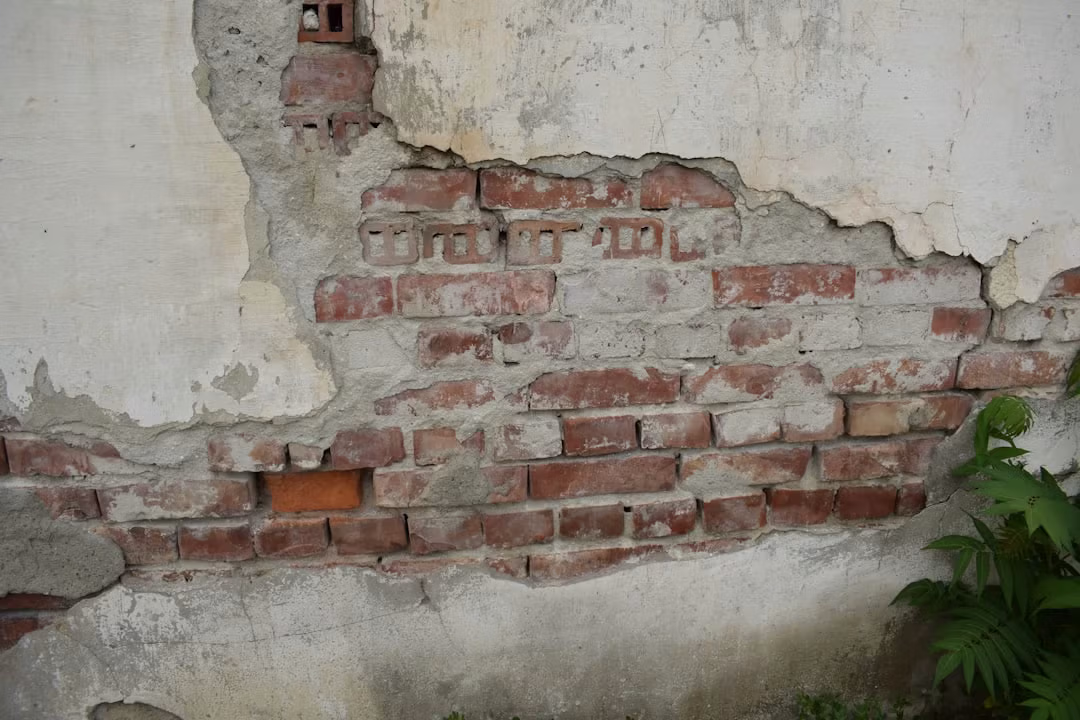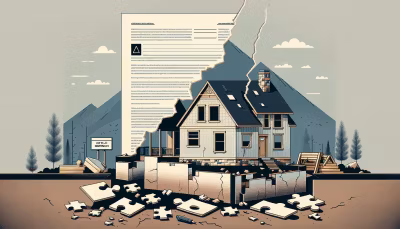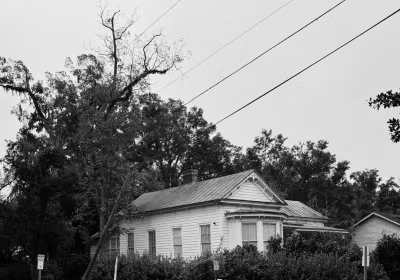When construction projects result in defects or subpar workmanship, property owners face significant challenges. Construction defects can lead to financial losses and safety concerns, leaving homeowners wondering whether pursuing legal action is worth the effort.
In Colorado, understanding your rights and options when dealing with construction defects is crucial for making informed decisions. This guide explores whether suing a contractor makes sense for your situation and how to navigate this complex legal terrain.
Assessing Your Construction Defect Situation
Before deciding to pursue legal action, you need to conduct a comprehensive assessment of your situation. This evaluation will help determine whether a lawsuit is your best option.
Conduct a Thorough Property Inspection
Begin by inspecting your property carefully, paying close attention to any visible defects or signs of substandard workmanship. Learn how to identify construction defects in your home to ensure you don't miss important issues.
Document your findings meticulously by:
Taking detailed photographs from multiple angles
Recording videos of problem areas
Writing comprehensive notes about each defect
Measuring and documenting the extent of damage
Evaluate the Severity and Impact
Consider these critical factors when assessing your situation:
Severity of defects: How extensive is the damage?
Safety concerns: Do the defects pose risks to occupants?
Structural integrity: Are foundational elements affected?
Repair costs: What will it cost to fix the problems?
Remember that seemingly minor defects may indicate underlying problems that could worsen over time, leading to more extensive damage and higher repair costs.
Get Professional Expert Opinions
Consult with qualified professionals to obtain expert opinions on the nature and extent of defects. Consider hiring:
Structural engineers
Construction defect experts
Specialized inspectors
Their insights can help you understand the scope of problems and assess whether pursuing legal action is feasible. Expert witnesses play a crucial role in construction defect cases, so getting professional evaluations early is essential.
Understanding Your Legal Rights in Colorado
Colorado law provides specific protections for property owners dealing with construction defects. Understanding these rights is essential before deciding whether to sue.
The Colorado Construction Defect Action Reform Act (CDARA)
CDARA governs construction defect claims in Colorado, establishing the legal framework for addressing issues related to:
Faulty workmanship
Design deficiencies
Material failures
Under CDARA, property owners have specific rights, including:
The right to file lawsuits against responsible parties
Protection through specified time limits for claims
Established procedures for notice and inspection
Streamlined processes for dispute resolution
For detailed information about compliance requirements, review CDARA's notice and disclosure requirements.
Who Can Be Held Liable
Colorado law allows you to pursue claims against various parties involved in construction, including:
General contractors
Subcontractors
Architects and engineers
Developers
Material suppliers
Consulting with a Colorado Construction Defect Lawyer
When considering legal action, seeking guidance from an experienced Colorado construction defect lawyer is essential. These attorneys specialize in construction-related disputes and understand Colorado's complex construction laws.
What to Prepare for Your Consultation
Provide your lawyer with comprehensive documentation, including:
Professional inspection reports
Photographs and videos of defects
All correspondence with the contractor
Construction contracts and change orders
Repair estimates and invoices
What Your Lawyer Will Evaluate
During your consultation, an experienced attorney will:
Review all evidence and documentation
Assess the strengths and weaknesses of your case
Explain your legal rights and available options
Provide estimates of potential costs and timelines
Discuss the likelihood of success
Your lawyer can also explain alternatives to litigation, such as mediation versus court proceedings.
Weighing the Pros and Cons of Litigation
Suing a contractor is a significant decision requiring careful consideration of multiple factors. Understanding both benefits and drawbacks helps you make an informed choice.
Potential Benefits of Pursuing Legal Action
Litigation can offer several advantages:
Financial compensation: Recovery of damages for repairs and losses
Accountability: Holding responsible parties liable for their actions
Legal remedies: Court-ordered repairs or monetary awards
Justice and closure: Resolution of disputes through the legal system
Potential Drawbacks to Consider
However, litigation also involves significant challenges:
Time consumption: Cases can take months or years to resolve
High costs: Legal fees, expert witness costs, and court expenses
Emotional stress: Prolonged legal battles can be mentally exhausting
Uncertain outcomes: No guarantee of success or favorable results
Relationship strain: Potential damage to business relationships
Factors That Influence Success
Several elements can impact your case outcome:
Quality and quantity of evidence
Strength of legal arguments
Credibility of expert witnesses
Judicial discretion and interpretation
Defendant's financial ability to pay damages
Exploring Alternative Dispute Resolution
Before committing to traditional litigation, consider alternative methods that may offer more efficient and cost-effective solutions.
Mediation Process
Mediation involves a neutral third party who facilitates negotiations between you and the contractor. Benefits include:
Faster resolution: Often quicker than court proceedings
Lower costs: Reduced legal fees and expenses
Preserved relationships: Less adversarial than litigation
Greater control: Parties retain decision-making authority
Confidential process: Discussions remain private
Arbitration Option
Arbitration involves an arbitrator or panel hearing arguments and issuing a binding decision. This process offers:
Streamlined procedures: Less formal than court trials
Expert decision-makers: Arbitrators with construction experience
Final resolution: Binding decisions with limited appeal rights
Reduced time: Faster than traditional litigation
Your construction defect lawyer can help facilitate these discussions and advocate for your interests while seeking mutually agreeable solutions.
Making Your Decision: Key Considerations
When deciding whether to sue a contractor for construction defects, consider these crucial factors:
Financial Considerations
Damage extent: Total cost of repairs and associated losses
Legal costs: Attorney fees, expert witnesses, and court expenses
Recovery likelihood: Realistic assessment of potential compensation
Defendant's assets: Contractor's ability to pay judgments
Time Factors
Statute of limitations: Deadlines for filing claims
Case timeline: Expected duration from filing to resolution
Personal schedule: Your availability for depositions and trial
Evidence Strength
Documentation quality: Completeness of your evidence
Expert support: Professional opinions supporting your claims
Witness availability: People who can testify on your behalf
Alternative Options
Before litigation, consider whether you can:
Negotiate directly with the contractor
Use warranty protections
Pursue insurance coverage
Conclusion
Deciding whether to sue a contractor for construction defects requires careful evaluation of your specific situation, legal rights, and available options. In Colorado, property owners have strong legal protections, but litigation isn't always the best solution.
Key steps include:
Thoroughly documenting all defects and damage
Understanding your rights under Colorado law
Consulting with experienced legal professionals
Weighing litigation benefits against costs and risks
Considering alternative dispute resolution methods
By taking a methodical approach and working with knowledgeable construction defect attorneys, you can make informed decisions that protect your interests and help you seek appropriate remedies. Whether through litigation or alternative means, addressing construction defects promptly is essential for preserving your property's value, safety, and integrity.
Remember that understanding the costs associated with fixing construction defects early in the process can help inform your decision about pursuing legal action.
Have Questions About Contractor Disputes?
Our experienced construction defect attorneys are here to help. Schedule a free 15-minute screening call to discuss your situation.




